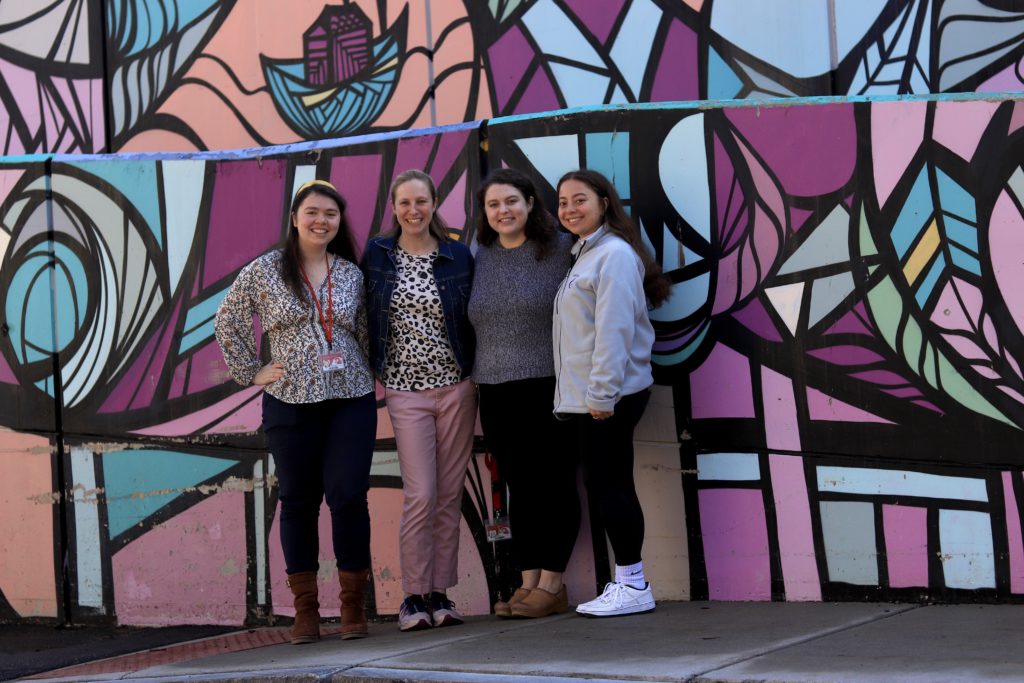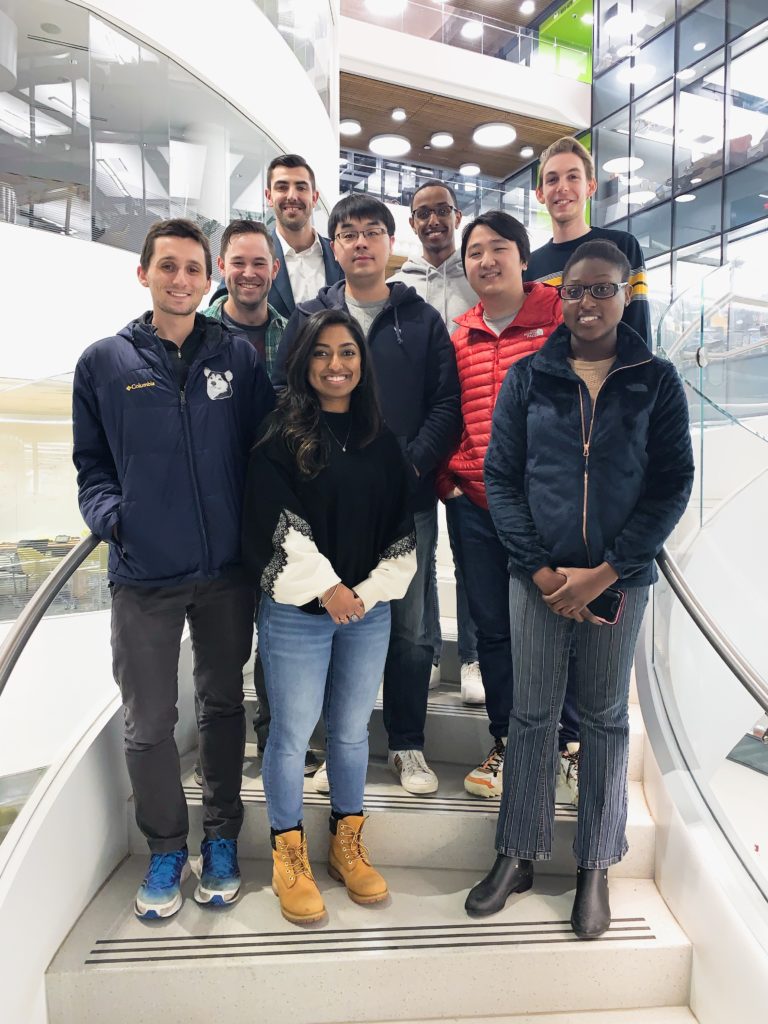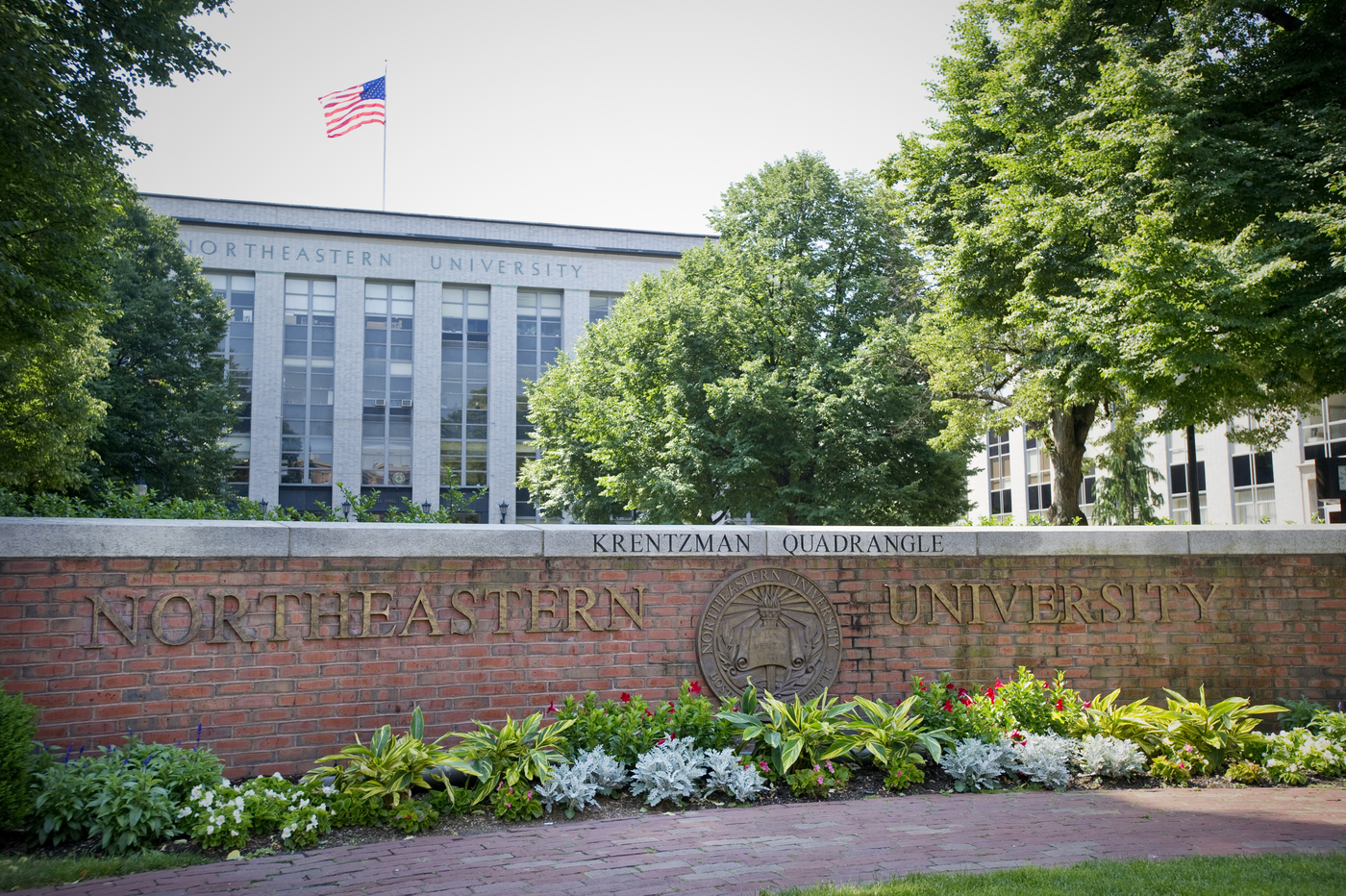Two Northeastern faculty members, biology professor Tovah Day and chemistry professor Steven Lopez, have received National Science Foundation (NSF) CAREER grants, awarded to early-career academics with the potential to serve as role models in research and education.
“We were thrilled and extremely grateful to NSF to receive this funding that allows us to do experiments that we’re really excited to pursue,” Day says, whose lab focuses on studying a knotted structure of DNA known as guanine quadruplex, or G4, which can promote and suppress the expression of genes. “It really gives us flexibility to pursue some hypotheses that are a little bit outside the box.”
G4 DNA can be dangerous to the body because it can more easily mutate than typical helix-shaped DNA. As the cell tries to unknot the G4 structure, the DNA segment can break, which leads to errors in DNA replication and repair in the form of base pairs either altered or accidentally added or deleted. These mutations can then propagate with cell division and contribute to human aging and diseases such as cancer and neurodegeneration.
The Day Lab hopes to use the funding to better understand this process and other errors in G4 chemical processes — such as one that leads to quadruplexes accumulating outside of the nucleus of the cell, where DNA is typically stored — and understand the effects these errors may have on the body.
Lopez, a college of Day’s at Northeastern’s interdisciplinary Chemical Imaging of Living Systems Institute, is using the grant to focus on a completely different group of chemical processes: reactions that are driven by light. Photochemistry is of interest to academia, industry, and government research because light, whether it be sunlight or a lamp, is a much greener catalyst than long-duration heating and expensive metal-containing alternatives.

“The Day Lab”/Courtesy of Tovah Day
But chemists understand little about these reactions because they occur extremely quickly — in less than a billionth of a second — which makes experimentally observing the reactions next to impossible. On the opposite end of the spectrum, computationally simulating the complex dynamics of the chemical bonds in these reactions requires extensive computing resources and time.
“If your reaction completes in just one nanosecond, it’s already a thousand times too expensive,” Lopez says of the computational time expense to simulate these reactions. “And my students don’t want to take thousand-year PhDs, it turns out.”
The Lopez Lab’s solution? Using machine learning algorithms trained on data from their past simulations to accelerate the process, reducing the time per simulation by ten-thousand-fold.

“The Lopez Lab”/Courtesy of Steven Lopez
The group will use the grant to expand this data-driven machine learning approach from gas-state reactions into liquid- and solid-state reactions, as well as establish processes for achieving these results with open-access software. Lopez’s team is already working with the Cambridge startup Kebotix to implement this technology into the complex material production industry. The project ties in with the $15-million NSF-funded Institute for Data-Driven Dynamical Design, or ID4, where Lopez is the Outreach Director and one of the 16 principal investigators. Focused on data-driven discovery in chemistry and material science, the institute is a collaboration aimed at creating machine learning methods and infrastructure that can be applied to the molecular scale all the way up to the scale of architecture projects like the Golden Gate Bridge.
As a part of the CAREER award, recipients receive funding to establish programs with a broader positive community impact. Lopez, who founded the Alliance for Diversity in Science and Engineering, a national nonprofit focused on supporting graduate students from all backgrounds, plans on using his outreach experience at the nonprofit to host a research internship for community college students.
“Community college students oftentimes don’t have access to these research experiences,” Lopez says. “So, this summer, we’re going to start a pandemic-proof research experience — they don’t physically have to come to Northeastern because it’s computational.”
Day hopes to expand access to science in another way: by creating a program for graduate students at her lab to improve their science communication skills. This facet of her larger CAREER outreach program partners with Northeastern journalism professor Jeff Howe to bring the Day Lab and Howe’s science writing class together for a collaborative science communication practice and analysis project.
“Whether we admit it or not, almost all aspects of being a scientist really require you to be able to explain your research in different contexts,” Day says. “This is not something that is explicitly taught. It’s hard to do, but there are ways you can get better at it.”
The pandemic proved a major challenge for growing new research groups, making the timing of this award for Day and Lopez critical in accelerating the work at the up-and-coming labs. Both researchers expressed excitement toward what the award will mean for their groups and the opportunities they will be able to provide for young researchers. Day says her graduate students played a critical role in creating the proposal for the CAREER award, and she is excited to see how they rise to this moment.

